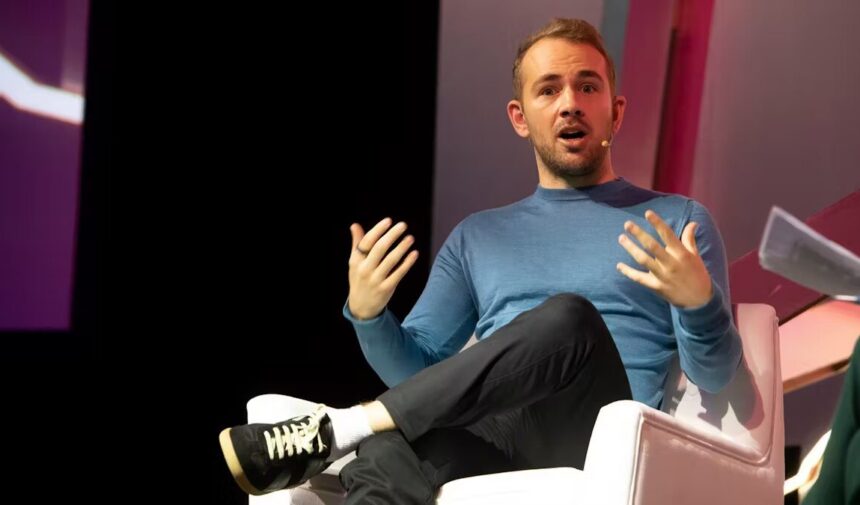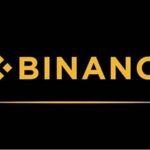
- Devin Finzer co-founded OpenSea in 2017, revolutionizing NFT trading and supporting creators through blockchain innovation.
- OpenSea faces challenges like regulatory scrutiny and competition, but Finzer remains committed to advancing the NFT ecosystem.
Devin Finzer was born in 1990 and grew up in the San Francisco Bay Area. His father is a software engineer, and his mother is a doctor. Finzer was early on introduced to the sector of technology and innovation.
Following his graduation from Miramonte High School in Orinda, California, he continued on to Brown University, concentrating in computer science and mathematics, and graduated in 2013.
Early Career and Entrepreneurial Spirit
Finzer paid attention to more than just academics during his undergraduate years. Along with his friend Dylan Field, who would later discover Figma, he created CourseKick, a social search engine for university course enrollment.
Fascinatingly, 20% of undergraduate students have registered for the platform two weeks after it started. This encounter verified his ability to develop pertinent and required technological solutions.
Finzer started his working life as a software engineer at Pinterest following graduation. But his love of invention drove him to create Claimdog in 2015, a personal financial software subsequently bought by Credit Karma. His fascination in blockchain technology started to develop here, opening the path for his next trip.
OpenSea and the NFT Era Were Born
Along with Alex Atallah, Finzer created WifiCoin, a token exchange system for sharing access to a wifi router. They landed in Y Combinator on this concept.
The CryptoKitties phenomenon, which drove them to turn their attention to the non-fungible token (NFT) market, was actually the true motivation, though. Born in December 2017, OpenSea is a marketplace enabling people to purchase, sell, and find original digital goods.
OpenSea has grown shockingly under Finzer’s direction. The company raised $300 million in Series C money in January 2022, therefore raising its worth to $13.3 billion. With an estimated net worth of $2.2 billion apiece at the time, this success made Finzer and Atallah the first NFT billionaires worldwide.
Devin Finzer Responds as OpenSea Battles SEC and Competition
Still, the field of technology is continually changing. OpenSea’s valuation has dropped, so Finzer’s and Atallah’s net worths as of April 2023 seem to have dropped to less than $600 million apiece.
Between February and October 2024, some important leaders also left the firm: General Counsel, Head of Business and Corporate Development, Vice President of Finance, and Chief Operating Officer. These developments coincide with decreased NFT trade volumes and more rivalry from other platforms, including Blur and Magic Eden.
Conversely, the US Securities and Exchange Commission (SEC) sent OpenSea a Wells notice in August 2024 suggesting possible enforcement action on claims that NFTs on the platform qualify as unregistered securities. Finzer responded with astonishment and promised to help NFT founders with industry lobbying funding of $5 million.
How Digital Twins Could Transform Ownership in the NFT Space
Finzer is dedicated to OpenSea’s objective of helping creators and developing the NFT ecosystem despite the difficulties. Blockchain and NFT technologies, in his opinion, are still in their early years and have much promise still to be fully fulfilled.
Finzer sees OpenSea as having the ability to bring similar changes to the world of digital assets, just as Amazon began as an online bookshop and subsequently altered the way we buy.
Finzer discussed the idea of “Digital Twins,” whereby actual objects might have an online NFT twin, in an interview. Someone might, for instance, have a rare and costly piece of art; instead of having to physically move it every time it is sold, the NFT of the artwork can be transferred while the original owner retains the actual thing.
This method not only streamlines the transaction procedure but also creates new opportunities for our perspective of ownership and the worth of goods.
Finzer underlined especially the need for enhancing OpenSea’s user experience. From removing or reducing gas prices on transactions to creating a wallet that facilitates interaction with decentralized apps, all of these initiatives seek to make the platform more approachable and accessible to all.





